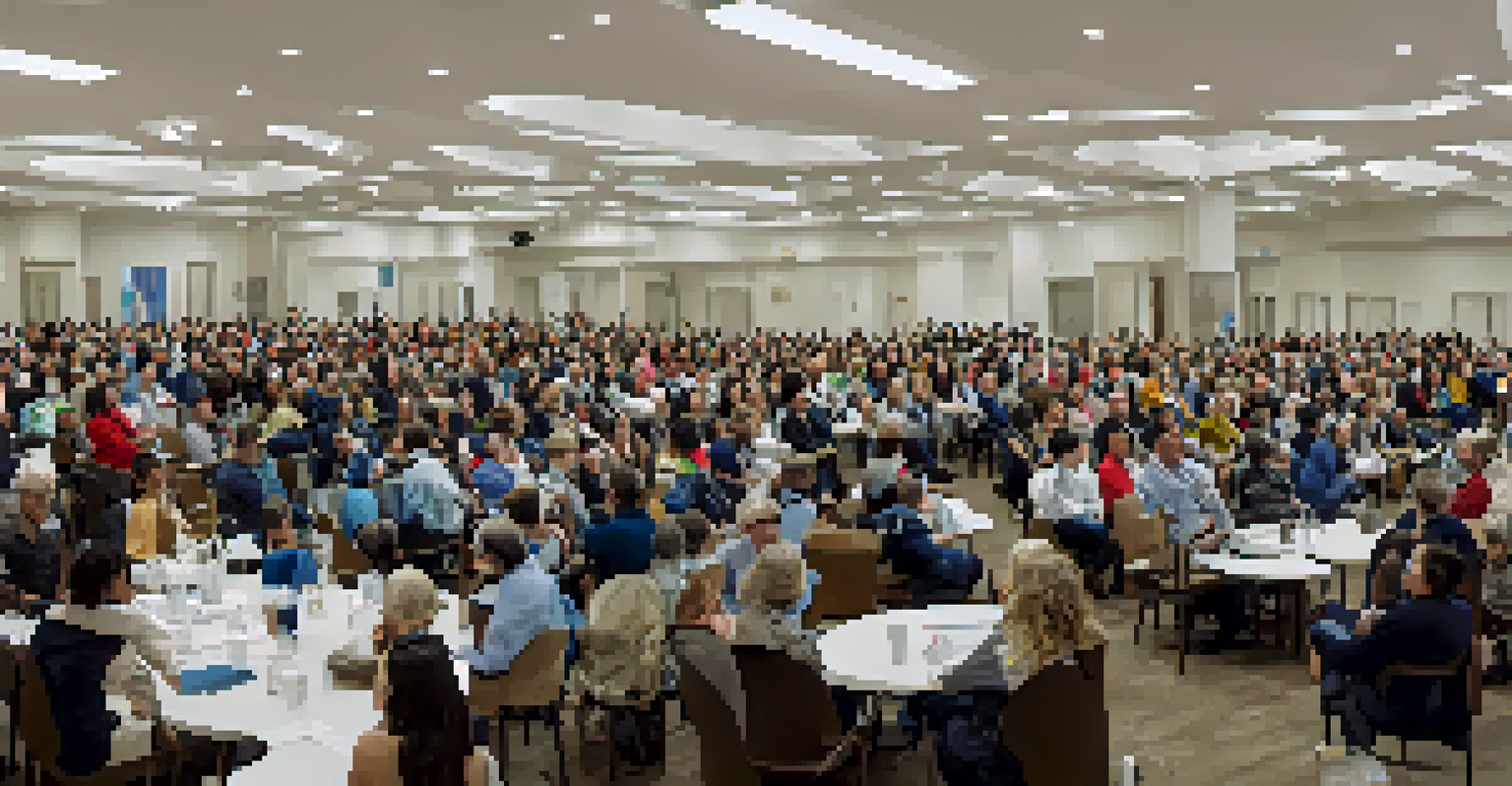Assessing the Impact of Local Policies on Real Estate Trends

Understanding Local Policies and Their Scope
Local policies encompass a range of regulations and guidelines set by city or county governments. These can include zoning laws, property taxes, and housing development incentives, all of which significantly impact real estate. For instance, a city’s decision to rezone an area can transform it from industrial use to residential, driving demand for housing in that neighborhood.
Local policies are the invisible hand that shapes our communities and impacts our daily lives.
The scope of these policies can vary widely, affecting everything from how properties are developed to how they are valued. For example, some municipalities might implement policies that encourage green building practices, which can increase property values in the long run. Understanding the nuances of these policies is crucial for investors and homeowners alike.
Moreover, local policies often reflect the values and priorities of a community, making it essential to assess their broader implications. By examining these policies, we can gain insights into the future direction of real estate trends, helping stakeholders make informed decisions.
The Role of Zoning Laws in Real Estate Development
Zoning laws are a fundamental aspect of local policies, dictating what can be built where. These regulations can either promote or hinder real estate development, depending on how they’re structured. For instance, a city that allows mixed-use development can foster vibrant communities, attracting both residential and commercial investments.

On the other hand, overly restrictive zoning can lead to housing shortages and inflated prices. For example, a neighborhood that strictly limits the height of buildings may stifle the creation of affordable housing options, pushing potential buyers to other areas. This illustrates the direct link between zoning laws and real estate trends.
Local Policies Shape Real Estate Trends
Understanding local policies, including zoning laws and property taxes, is essential as they significantly influence real estate development and market dynamics.
As communities evolve, so too should their zoning laws. Regular assessments and updates can help ensure that these regulations meet the current needs of residents and businesses, fostering a healthier real estate landscape.
Impact of Property Taxes on Homeownership and Investment
Property taxes play a significant role in shaping the real estate market, influencing both homeowners and investors. High property taxes can deter potential buyers, making homes less affordable, while lower taxes can stimulate demand. For instance, some cities offer tax incentives for first-time homebuyers, encouraging them to enter the market.
Zoning laws are not just bureaucratic hurdles; they are the blueprints of our cities' futures.
Additionally, property taxes can affect investment decisions. Investors often look for areas with favorable tax conditions to maximize their returns. A neighborhood with low taxes may attract more rental properties, driving up demand and prices over time.
It’s crucial for local governments to strike a balance in their tax policies. By keeping property taxes at a reasonable level, they can promote homeownership and attract investment while still generating necessary revenue for community services.
Housing Development Incentives and Their Effectiveness
Local governments often implement housing development incentives to encourage the construction of new homes. These incentives can take various forms, such as tax breaks, grants, or streamlined permitting processes. For example, a city might offer financial assistance to developers who commit to building affordable housing units.
While these incentives can stimulate growth, their effectiveness can vary based on implementation and market conditions. In some cases, developers may prioritize profit over community needs, leading to a mismatch between incentives and actual housing demands. Therefore, ongoing evaluation of these programs is essential.
Community Engagement Drives Policy
Active community participation in policy development ensures that local regulations reflect the needs and desires of residents, leading to more equitable real estate outcomes.
Ultimately, successful housing development incentives should align with community goals, ensuring that new construction meets the needs of residents. This alignment can foster sustainable growth and improve overall real estate trends in the area.
Environmental Regulations and Their Influence on Real Estate
Environmental regulations are increasingly becoming a key factor in real estate trends. These laws may include restrictions on land use, requirements for green building practices, or guidelines for protecting natural resources. For example, a city that mandates energy-efficient building standards will likely see a rise in demand for eco-friendly properties.
While these regulations can enhance environmental sustainability, they may also pose challenges for developers. Stricter regulations can increase construction costs and project timelines, potentially deterring investment. However, properties that meet high environmental standards often attract environmentally conscious buyers, creating a niche market.
Finding a balance between environmental protection and real estate development is crucial. By fostering collaboration between developers and regulators, communities can create policies that support both ecological integrity and economic growth.
Community Engagement in Policy Development
Community engagement is vital in shaping local policies that affect real estate trends. When residents actively participate in discussions about zoning, taxes, and housing incentives, their voices can guide decision-making. This grassroots involvement ensures that policies reflect the needs and desires of the community.
For instance, town hall meetings or online forums can provide platforms for residents to express their views on proposed developments or changes in zoning laws. This kind of engagement not only fosters transparency but also builds trust between local governments and citizens. A community that feels heard is more likely to support policy initiatives.
Adaptability is Key for Local Policies
As real estate markets evolve due to factors like population growth and remote work trends, local policies must adapt to support sustainable growth and address emerging challenges.
Moreover, inclusive policy development can lead to more equitable outcomes in real estate. By considering diverse perspectives, local governments can create policies that benefit all residents, ensuring sustainable growth and enhancing overall quality of life.
Future Trends: Adapting Policies for Changing Markets
As the real estate market evolves, local policies must adapt to keep pace with changing trends. Factors such as population growth, economic shifts, and technological advancements can all influence real estate dynamics. For example, the rise of remote work has led to increased demand for homes in suburban areas, prompting some cities to reevaluate their zoning laws.
Local governments need to stay ahead of these trends by regularly assessing their policies. This proactive approach can help create environments that support growth while also addressing emerging challenges. For instance, cities might consider policies that encourage the development of mixed-use spaces to accommodate changing lifestyles.

Ultimately, adaptability is key. By remaining flexible and responsive to market changes, local policies can effectively shape real estate trends, benefiting both communities and investors alike.